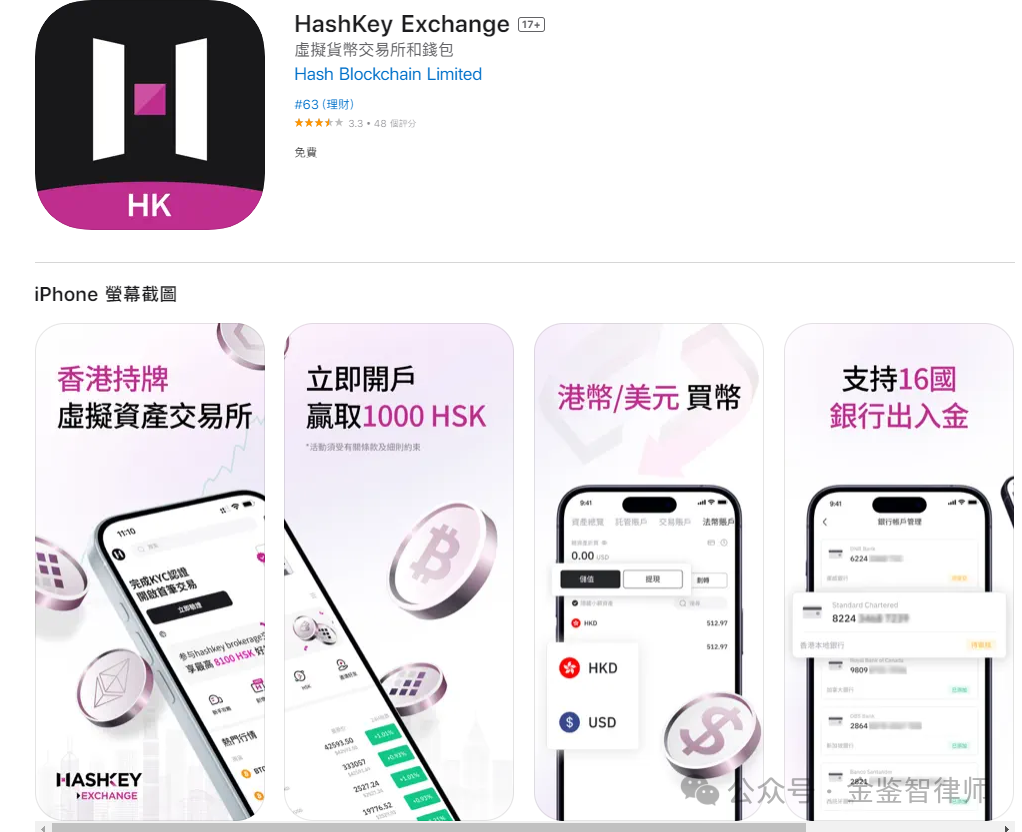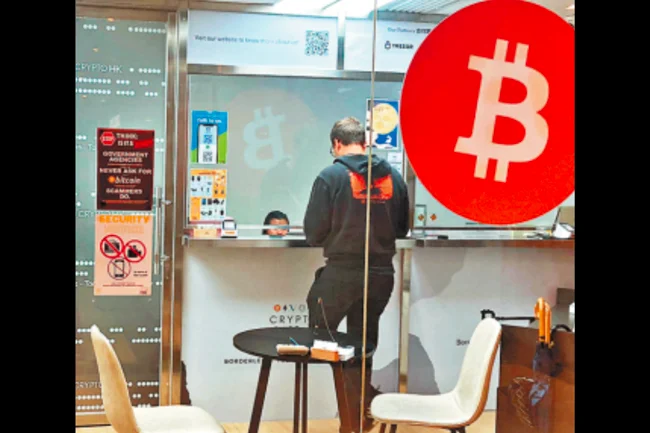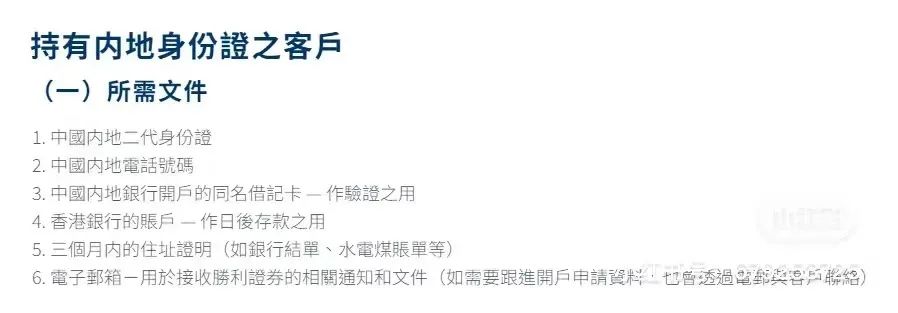In Hong Kong, virtual currency is completely a "sunny" topic.
Author: Jin Jianzhi
Virtual currency is a very awkward existence in China. Due to certain regulatory issues, friends who buy and sell virtual currency in China have various concerns, such as how to find a trustworthy deposit method, how to safely withdraw funds without being frozen, how to seek judicial relief in case of disputes, and how to explain the source of their virtual currency to public security and judicial authorities… But in Hong Kong, none of the above is a big problem. Virtual currency is completely a "sunny" topic in Hong Kong. In Hong Kong, there are many ways to legally buy and sell virtual currency.
Virtual Currency Exchanges
As of the date of this article, there are currently 2 virtual asset service providers (VASP licenses) in Hong Kong: Hashkey, OSL, and 1 principle-approved HKVAX.
In short, Hashkey and OSL are two licensed exchanges approved by the Hong Kong Securities and Futures Commission. Users can directly buy and sell virtual currency on the exchange platform by registering an account, depositing funds, placing orders, and withdrawing funds, and do not have to worry too much about any harm to investor rights on the exchange, because the actions of the exchange are under the supervision of the Securities and Futures Commission, and users can also complain to the Commission and report any violations by the exchange at any time.
However, according to the regulatory requirements of the Hong Kong Securities and Futures Commission, in order to protect investor rights, there are differences in the types of virtual currencies that professional and retail investors can purchase. Taking the example of the Hashkey exchange, when opening an account with Hashkey, you can choose from 4 types: retail investors (commonly known as retail investors), individual professional investors (with an investment portfolio of not less than 8 million Hong Kong dollars or the equivalent in foreign currency), corporate professional investors (with an investment portfolio of not less than 8 million Hong Kong dollars or the equivalent in foreign currency, or total assets of not less than 40 million Hong Kong dollars or the equivalent in foreign currency), and institutional professional investors. Retail investors can only buy fiat currency trading pairs of mainstream cryptocurrencies such as BTC and ETH, while professional investors can trade and withdraw stablecoins and all virtual currency pairs listed on the exchange.

Over-the-Counter (OTC) Trading
Virtual currency OTC merchants refer to institutions or individuals that provide over-the-counter (OTC) trading services. OTC trading refers to the buying and selling of cryptocurrencies outside of exchanges, usually involving cash or other legal tender. OTC trading takes several forms:
Online platforms: Connecting buyers and sellers through websites, social media, messaging apps, and other online tools, providing matching, escrow, and clearing services.
Offline stores: Providing cash-to-cryptocurrency or cryptocurrency-to-cash services in physical storefronts, usually without the need for real-name authentication or other compliance requirements.
ATMs: Self-service devices set up in public places for buying or selling cryptocurrencies with cash or bank cards.
According to a rough estimate from preliminary on-site observations by law enforcement agencies in Hong Kong, there are approximately 200 physical over-the-counter virtual asset trading stores (including over-the-counter trading stores operated by ATMs) operating across the city, as well as about 250 active online virtual asset trading service providers. According to a Chainalysis investigation, exchange shops are an important part of over-the-counter cryptocurrency trading, accounting for a major portion of the $64 billion in digital assets flowing through Hong Kong as of June.
In the vast majority of OTC merchants' offline stores and ATMs, KYC is generally not required, and transactions are simple, involving a direct exchange of money for virtual currency, typically taking only a few minutes to complete. This provides cryptocurrency users with a convenient, flexible, and private trading method, especially popular among mainland users.
It is worth mentioning that on February 2, 2024, the Financial Secretary of Hong Kong, Paul Chan Mo-po, stated that the Hong Kong government believes there is a need to regulate OTC trading. For users, buying and selling virtual currency through OTC will become safer. Any illegal or non-compliant activities in OTC can also be directly reported to the regulatory authorities.


(Image source: TokenInsight)
Securities Firms
A-share investors are undoubtedly familiar with the process of opening accounts and trading stocks on the Shenzhen and Shanghai stock exchanges through major securities firms. Similarly, buying and selling virtual currency in Hong Kong can also be done through securities firms. In fact, an increasing number of Hong Kong securities firms are also venturing into cryptocurrency businesses, including Futu Securities, Tiger Brokers, Victory Securities, Interactive Brokers, South China Securities, Changjiang Securities, Richland Securities, and Huafu Jianye Securities.
Among them, the Hong Kong-listed company and long-established Hong Kong securities firm Victory Securities has been approved by the Hong Kong Securities and Futures Commission to provide virtual asset trading and advisory services to retail investors. In short, traditional securities firm users can buy and sell virtual currency through the securities firm platform. According to an interview with Chen Peiquan, Executive Director of Victory Securities, Victory Securities will soon launch an app that "integrates the trading experience of traditional finance, such as stocks and bonds, with the trading experience of virtual currency, allowing customers to allocate various assets they need on a single platform." This means that stock trading and cryptocurrency trading will be seamlessly integrated.
According to the Victory Securities website, mainland residents only need to provide the following information to open an account with Victory Securities, with the less straightforward requirement being a Hong Kong bank account and proof of overseas address within the last 3 months. After opening an account, fiat currency can be used to buy and sell mainstream virtual currencies through the securities firm.

(Image source: Victory Securities official website)
When authenticating, it is important to distinguish between guests and registered users. For guests, real-name authentication may not be required, but for registered users posting, real-name authentication is necessary. It is important to note that a decentralized wallet cannot be equated with real-name authentication, as decentralized wallets are also anonymous. Therefore, if users are required to log in or bind with a decentralized wallet, they also need to provide other valid forms of identification, such as phone number, email, ID card, to complete the real-name authentication requirement.
Conclusion
As the legal status of virtual assets is increasingly recognized in more countries and regions, the legitimate channels and methods for virtual asset investors to participate are gradually becoming more diverse. It is hoped that the summary of this article can provide reference and advice to relevant friends. It should be noted that as Chinese citizens, it is still necessary to comply with relevant management regulations in the process of asset inflow and outflow. For further compliance advice on virtual currency allocation, you can contact Man Kun Law Firm.
免责声明:本文章仅代表作者个人观点,不代表本平台的立场和观点。本文章仅供信息分享,不构成对任何人的任何投资建议。用户与作者之间的任何争议,与本平台无关。如网页中刊载的文章或图片涉及侵权,请提供相关的权利证明和身份证明发送邮件到support@aicoin.com,本平台相关工作人员将会进行核查。




